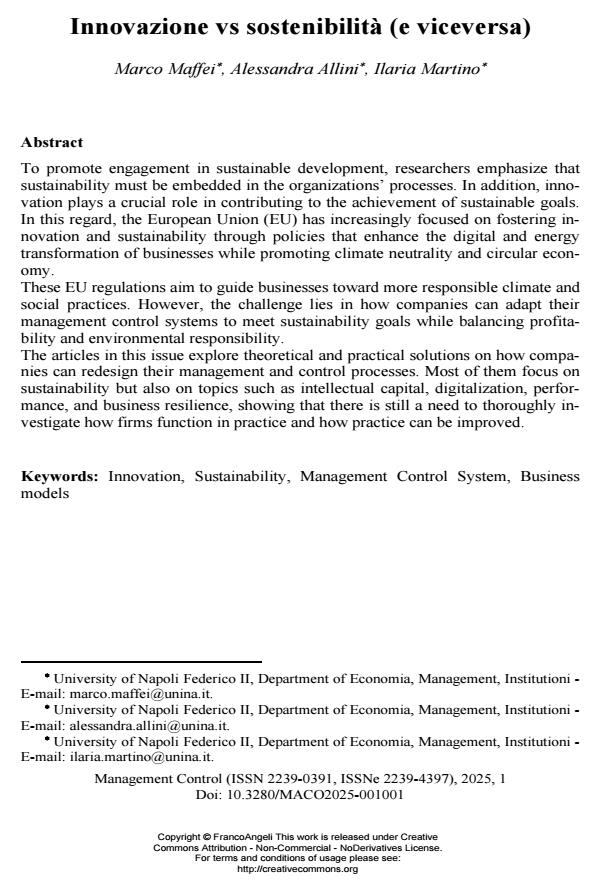Innovazione vs sostenibilità (e viceversa)
Journal title MANAGEMENT CONTROL
Author/s Marco Maffei, Alessandra Allini, Ilaria Martino
Publishing Year 2025 Issue 2025/1
Language Italian Pages 10 P. 5-14 File size 68 KB
DOI 10.3280/MACO2025-001001
DOI is like a bar code for intellectual property: to have more infomation
click here

FrancoAngeli is member of Publishers International Linking Association, Inc (PILA), a not-for-profit association which run the CrossRef service enabling links to and from online scholarly content.
To promote engagement in sustainable development, researchers emphasize that sustainability must be embedded in the organizations’ processes. In addition, in-novation plays a crucial role in contributing to the achievement of sustainable goals. In this regard, the European Union (EU) has increasingly focused on foster-ing innovation and sustainability through policies that enhance the digital and en-ergy transformation of businesses while promoting climate neutrality and circular economy. These EU regulations aim to guide businesses toward more responsible climate and social practices. However, the challenge lies in how companies can adapt their management control systems to meet sustainability goals while balancing profita-bility and environmental responsibility. The articles in this issue explore theoretical and practical solutions on how compa-nies can redesign their management and control processes. Most of them focus on sustainability but also on topics such as intellectual capital, digitalization, perfor-mance, and business resilience, showing that there is still a need to thoroughly in-vestigate how firms function in practice and how practice can be improved.
Keywords: Innovation, Sustainability, Management Control System, Business models
Marco Maffei, Alessandra Allini, Ilaria Martino, Innovazione vs sostenibilità (e viceversa) in "MANAGEMENT CONTROL" 1/2025, pp 5-14, DOI: 10.3280/MACO2025-001001